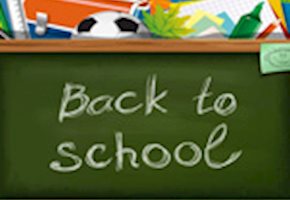Each family and child affected by a disability faces a different situation. Your child may have Autism, or struggle with a learning disability or Dyslexia, or have emotional difficulties which prohibit normal functioning, or may have a life-threatening food allergy. Although each of you has traveled different roads, you share the common goal of ensuring that your child goes back to school with an effective educational program. Upon your child’s reentry to school you will be overwhelmed by many of the special education terms you hear, and you will have many questions. This article will address the following: What is the Individuals with Disabilities Education Improvement Act? What is a Section 504 Plan? What are the differences between the two?
Overview of IDEA and Section 504
Differing degrees of supports or academic assistance can be obtained through the federal Individuals with Disabilities Education Act of 2004 (IDEA) or Section 504 of the Vocational Rehabilitation Act. The Individuals with Disabilities Education Act, commonly referred to as IDEA or IDEIA (Individuals with Disabilities Education Improvement Act), is a federal law that governs special education services in the United States. This federal law provides for a free and appropriate education for all students from birth through 21 in the least restrictive environment. SPAN (the Statewide Parent Advocacy Network) explains IDEA as follows: IDEA guarantees a free appropriate public education to children and youth from birth through 21 who have a disability that affects their ability to learn and requires special education and related services to from their education. Infants and toddlers with disabilities (birth-2) and their families receive early intervention services under IDEA Part C. Children and youth (ages 3-21) receive special education and related services under IDEA Part B.
Section 504 of the Vocational Rehabilitation Act of 1973 was established before IDEA. It was the first anti-discrimination legislation that addressed people with disabilities. Section 504 protects an individual who has a physical or mental impairment that substantially limits one or more life activities such as caring for oneself, performing manual tasks, walking, seeing, hearing, speaking, breathing, learning or working. It protects persons of all ages, not only school aged children. Almost every school in New Jersey receives federal funding of some type and is therefore obligated to adhere to Section 504 of the Vocational Rehabilitation Act. The Act also includes day care programs, before and after school programs, and recreational programs. The spirit of the law is to provide access through reasonable accommodations so all students benefit from their education.
There are some key differences between IDEA and Section 504 and these differences are reflected in the chart below.
Key Differences between IDEA and Section 504
|
|
IDEA |
Section 504 |
|
Purpose |
To provide a free, appropriate public education (FAPE) in the least restrictive environment |
To provide people with disabilities, to the maximum extent possible, the opportunity to be fully integrated into mainstream American life |
|
Scope |
Applies to all public schools (and charter schools) |
Applies to any program or activity that receives federal financial assistance |
|
Protection |
Children and youth from birth through high school graduation who fall within one or more of the specific categories of qualifying conditions – Traumatic Brain Injury (TBI) is included as a category
|
Any person, child or adult, who (1) has a physical or mental impairment that substantially limits one or more major life activities, (2) has a record of such an impairment, or (3) is regarded as having such an impairment – Individuals with brain injury are protected, those in and out of school |
|
Legal |
Enforced by the federal Individuals with Disabilities Education Improvement Act |
Enforced by the Americans with Disabilities Act |
|
Eligibility |
Requires that a child’s disability affects his/her educational performance - All students who are eligible under IDEA are also eligible for Section 504 |
Not all students who are eligible for Section 504 are also eligible for IDEA |
|
Evaluation |
Requires that a child be comprehensively evaluated by a multidisciplinary team |
Evaluation draws on information from a variety of sources and is documented |
|
Resulting Document |
Requires an Individualized Education Program (IEP) |
Does not require an IEP, but does require a written plan |
|
Annual Review |
IEP must be reviewed once a year at minimum |
504 plan must be reviewed periodically, but it is up to the educational agency or institution to establish procedures for review |
|
Reevaluation |
Required every three years or more frequently if needed, or at request of the parent, but not more than once a year, unless the district and parent agree |
Required before significant change in placement for school-aged children – Post-secondary education requirements vary from school to school |
|
Examples |
If your child cannot understand or comprehend the mathematical concept to solving a problem, then special education may be the better route |
If your child understands the concept of calculation (adding, subtraction, etc.) and can explain how to solve word problems, provision of a calculator to figure the correct answer may be an appropriate accommodation |
All children who are eligible for special education are considered disabled and, therefore, are protected under Section 504. However, all children who are considered to have a disability under Section 504 may not be eligible under IDEA. Eligibility for special education and related services under IDEA is determined collaboratively by a group of individuals that includes: the parent, a teacher who is knowledgeable about the student’s educational performance, at least one member of the child study team, and the student (when appropriate). If deemed ineligible for IDEA services the child may be referred for Section 504 services through the Section 504 coordinator. As a parent, you have the right to be involved in this process, including requesting a meeting in writing with the Section 504 coordinator if the child study team does not refer your child to the Section 504 coordinator.
For more information, or to schedule a consultation, contact Jayne Wesler, attorney and former Child Study Team member, who can address your concerns, answer your questions, and explain the law, or please visit www.special-ed-law.com
Courtesy of Jayne Wesler.






Add A Comment
Thank you for your comment.
Sorry! There was a problem with your comment submission. Please try again.
Comment
Allowed HTML: <b>, <i>, <u>, <a>
Comments
Thank you for your comment.
Sorry! There was a problem with your comment submission. Please try again.
Thank you for your comment.
Sorry! There was a problem with your comment submission. Please try again.